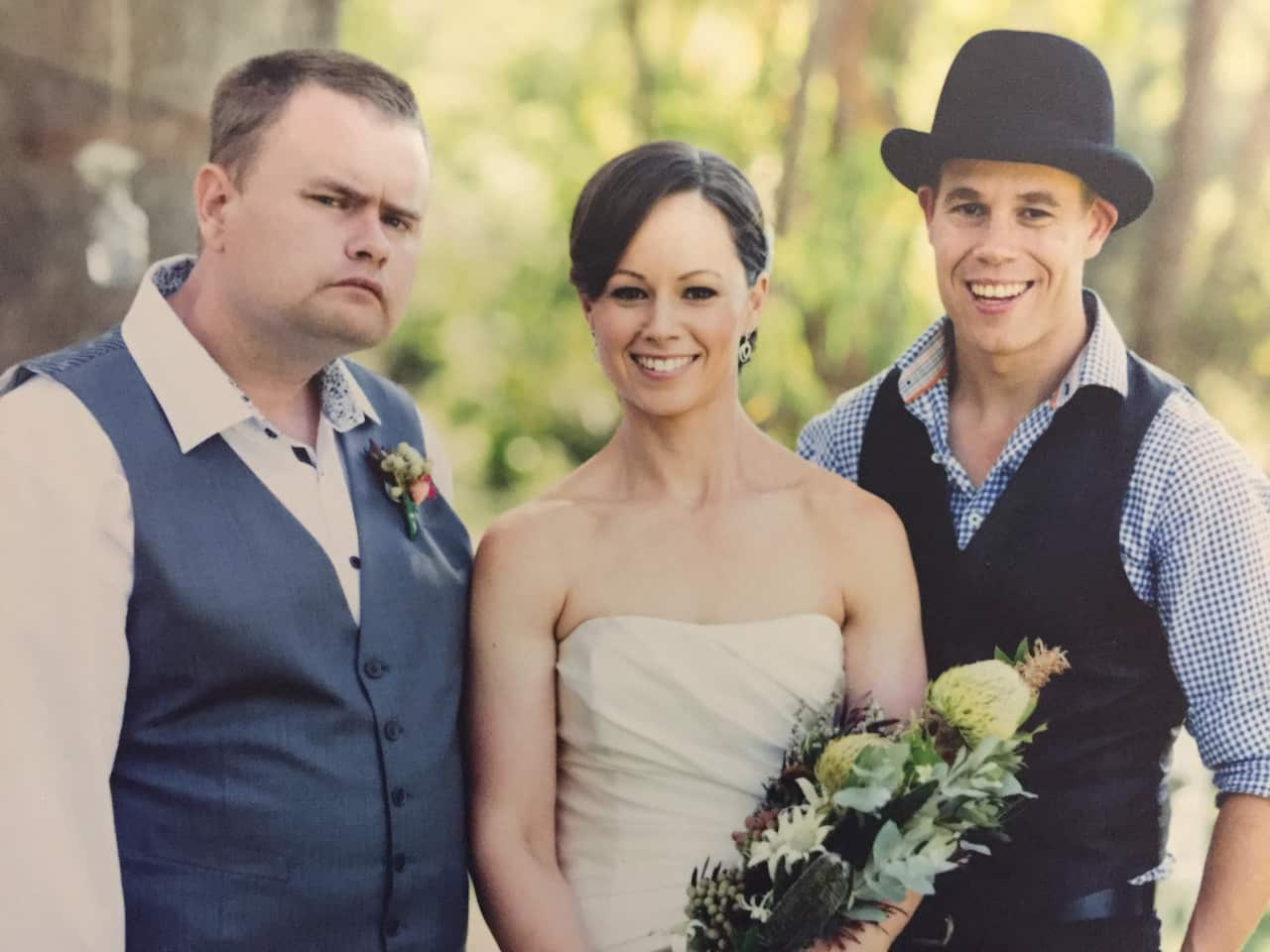All sibling relationships can be complex, but once disability is added to the mix it can become even more so. Feelings of isolation, anger, guilt, embarrassment and worry can emerge.
Amy Pattra, 36, is the youngest of three children. Her older brother Craig, now 38, has severe autism.
“His behaviour was erratic, volatile especially when he was younger and sometimes physically aggressive, but he mellowed out as he got older,” says Pattra.
“Because it was so stressful for my parents, as a younger child you learn to not give them any issues or problems.”
Parents can find it immensely difficult to balance the needs of the entire family.

A national survey carried out by Siblings Australia found over 80 per cent of parents and siblings experienced ongoing family stress.
Growing up, Pattra remembers much of her parents’ time was spent trying to contain her brother’s behaviour and manage his routine.
“I tried to be silent and I wouldn’t dare bring up any issues with my parents,” explains Pattra.
“As a child I was trying to look after them by not having any issues, but that led to depression and anxiety in my teenage years.”
Regardless of whether a sibling acts in a carer role, having a sibling with a disability leaves individuals at a greater risk of developing depression.
In the Siblings Australia survey, more than half of all respondents reported feelings of depression and over 65 percent experienced anxiety.
During Pattra's adolescence, she also struggled with an eating disorder but says it “went under the radar.”
“I remember crying one time because I was upset. I wanted my mum to hear me but I also didn’t because I knew she already had too much to deal with.”
She says for people who have little experience with disability, this isn’t about directing blame, just the result of an exceptionally stressful situation.
It was only until she visited a psychologist in her twenties that she realised how much the pressurised environment had contributed to her struggles.
Awareness needed
Kate Strohm, the director of Siblings Australia, explains that while nobody wants to add to the stigma around disability, it’s time to raise awareness for the vulnerable.
“We roll out these stories with inspirational stuff but by focussing on them we think why do we need to support siblings?” says Kate, who has experienced the isolation and confusion first-hand.
“There is a part of the community that not only ignores but denigrates them when they put their hand up.”
Strohm believes until siblings are recognised in policy there will be no inclination to offer much-needed support.
“The NDIS for example is a system for family and carers but family doesn’t extend to the majority of siblings,” says Strohm.
Kate suggests that help can be offered by first educating parent carers on the vulnerability of their other children. She recommends that support systems could also be put in place through schools where children spend most of their adolescence.
For Pattra, she says it’s important to acknowledge what sibling carers are experiencing.
“The big point is that siblings are children dealing with it, they’re not adults. Kids need to talk about how hard it is and not feel guilty.”
Insight is Australia's leading forum for debate and powerful first-person stories offering a unique perspective on the way we live. Read more about Insight
Have a story or comment? Contact Us


